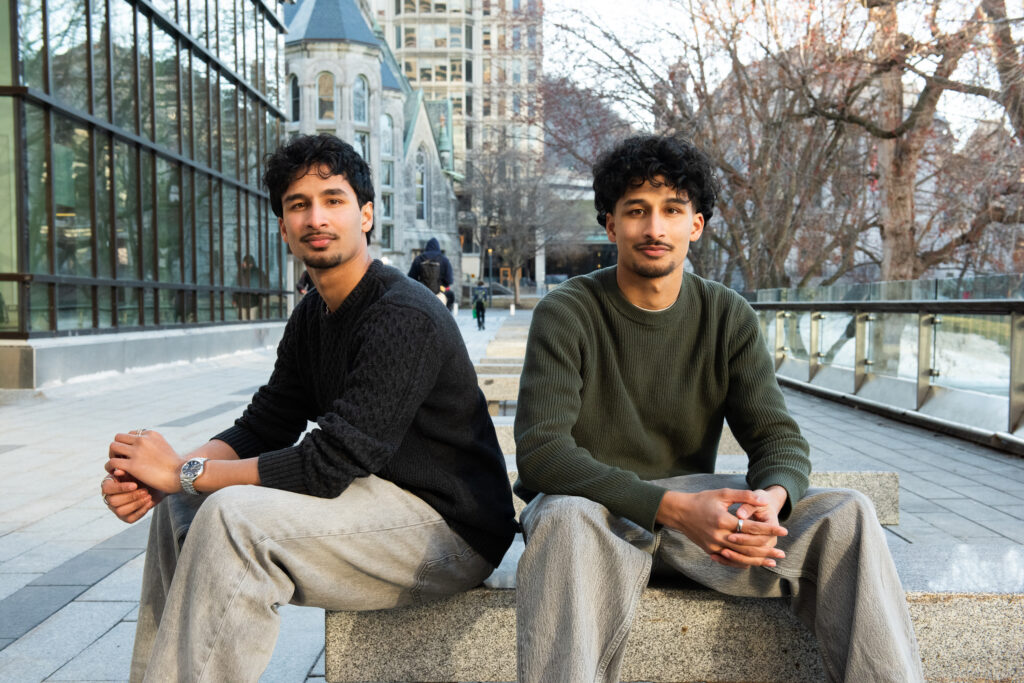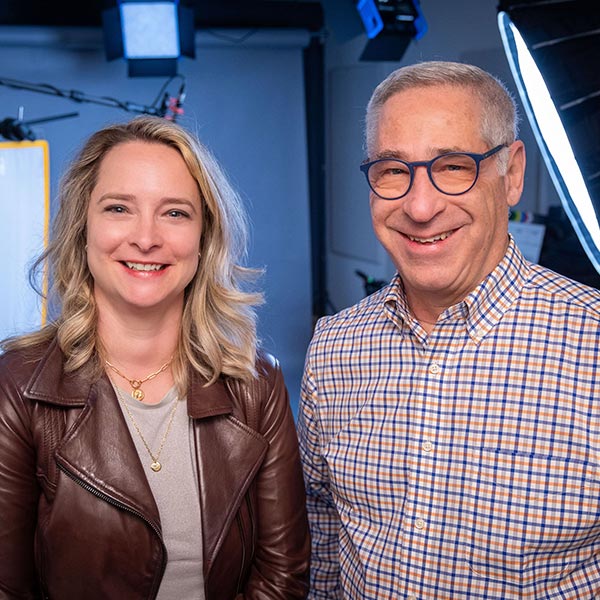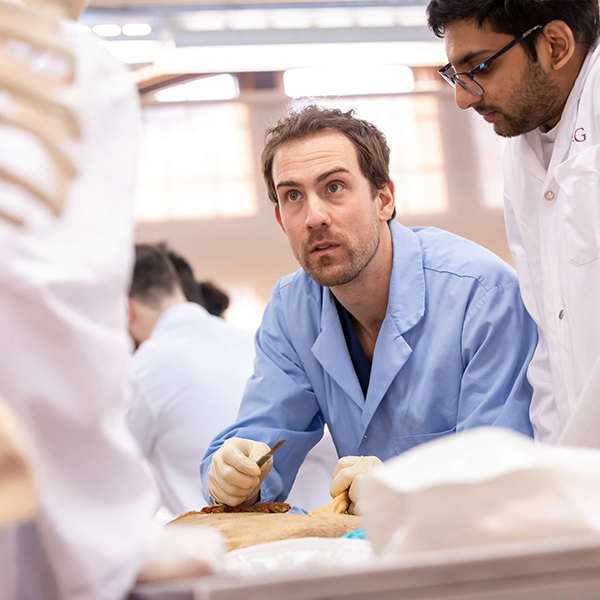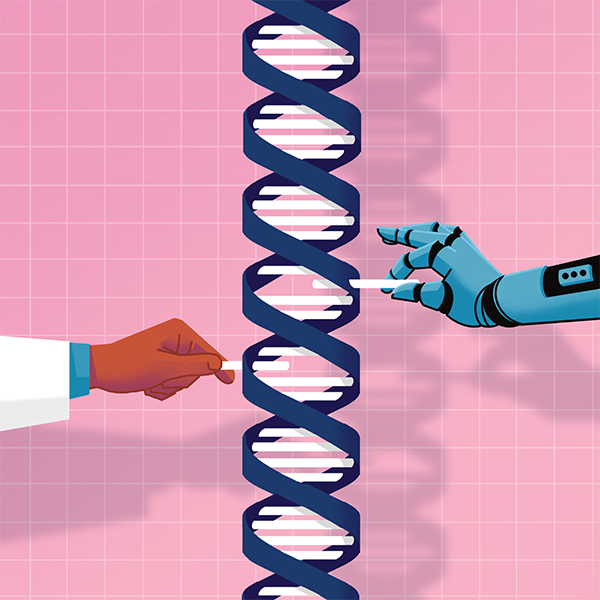Medical school can be a notoriously tough grind. Would it help to have someone close to you, someone who probably knows you better than anyone else in the world, share the experience?
Two sets of twins pursuing medical studies at McGill are currently putting that hypothesis to the test.
Shreya and Megha Udupa are second-year students, while Mathew and Michael Petros are in their first year of medical studies.
The Udupa sisters have never spent more than two days apart, still sharing a bedroom today. In high school, they discovered a joint passion for science and community, and did volunteer work in palliative care.
The Petros brothers began thinking seriously about working in healthcare during their morning drives to Collège Jean-de-Brébeuf, as their mother shared stories about her work as a physiotherapist in a hospital. Encouraged by their school to volunteer, they hosted karaoke nights for the patients in the psychiatric ward at Hôpital Notre Dame.

While the brothers are both studying medicine at McGill, their experiences haven’t quite been the same. Matthew attends classes at McGill’s downtown campus, while Michael was accepted into McGill’s Outaouais campus in Gatineau. Opened in 2020, the French-only program admits 38 medical students per year, aiming to strengthen the healthcare network of the region.
Michael says he enjoys the close-knit community on his campus. As one of the executive directors of ExploreMD, an initiative that hopes to get younger students in the region interested in medical careers, he wants to help increase accessibility to healthcare in remote communities.
“As doctors, they always tell us we have a role as leaders in society. In the future, something that I want to do is promote good healthcare and advocate for people who need it,” he says.
Mathew says he and his classmates have a lot of information to absorb – monthly exams summarize over 3,000 slides of material. “This might sound really nerdy, but the content is really interesting,” he says. “Putting together the anatomy, the physiology of how it works, and the pathologies of when it goes wrong, and putting that into a clinical setting.” He seriously considered studying engineering before opting for medical school and says he is drawn to the problem-solving aspect of medicine.
When interviewed, the Udupa sisters were in the Transition to Clinical Practice (TCP) phase of the curriculum, consisting of multi-week rotation blocks of various specialties. They say their professors encourage them to keep an open mind as they learn about different possible career paths.
“It’s like having a study buddy 24/7 that you’ve known from the womb. A lot of the time, if I’m stressed, I don’t even have to tell her, she would automatically know, and vice versa.”
Medical student Megha Udupa
The Udupas say sharing their medical school experience has made their 4 a.m. morning routines and two-hour public transit routes to the hospital much easier and more enjoyable (they live on the West Island). Overnight study sessions are fueled by a healthy competition and lightened with laughter.
“It’s like having a study buddy 24/7 that you’ve known from the womb,” says Megha. “A lot of the time, if I’m stressed, I don’t even have to tell her, she would automatically know, and vice versa. We’re there for each other all the time, which I’m so grateful for.”
The sisters both hold leadership roles in the Medical Intervention in a NeuroDiverse Society (MINDS) Taskforce, teaching students how to provide optimal healthcare for neurodivergent patients.
They are also both active in the Academic Immersion in Healthcare program that involves outreach to high school students with an eye towards encouraging them to consider careers in health care. Megha is involved with the Health Outreach Projects Club, a similar initiative, while Shreya is the president of McGill’s Rare Disease Interest Group.
“One big thing about med school is that you’re constantly working towards something, as in there’s always something that needs to be done,” says Shreya. “If we have a day off, there’s a guilt that comes with [that]… which is a feeling that a lot of people have, but it’s important to tell yourself to always take that time to enjoy the moment.”
The sisters are both involved in dance. They started with Bharatanatyam, a form of classical Indian dance, and later transitioned to Bollywood-style dancing. One of the reasons they chose McGill was its focus on diversity – they have performed at events held by McGill’s Indian Students Association.
The Petros brothers, who both play soccer on their respective campuses, say that the diversity of McGill’s student body was a selling point for them too. Classmates include parents in their forties, former military personnel and recent CEGEP graduates.
The Petros brothers add that they were also attracted by the research project opportunities available in their Faculty and the chance it provides to find out more about specific areas. Michael has recently been learning about a new surgery technique for thyroid nodules, while Matthew has been working on a multi-partner project focused on gene mutations associated with microcarcinomas in the thyroid.
“In the medical [community], it’s a lot about paying it forward,” says Mathew. “The doctors teach students, and the students teach other students, and it all just circulates.”
None of the four have firmly settled on a career specialization yet. Mathew says that interacting with patients is “fulfilling and fun,” and he is thinking about the ear, nose and throat specialty. Michael, a self-proclaimed adrenaline junkie with dexterous hands from violin training, is considering general surgery.
The Udupa sisters say they are continuously discovering new interests and see themselves working on the medical and clinical side, building connections with patients. “The best part of medical school is that discovery that you make about not only what specialty you like but also who you are as a person and how you want to be giving back to the people around you,” says Shreya.


